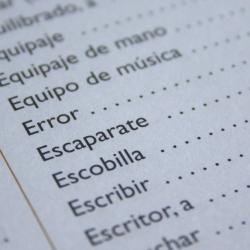Tips for Improving Your Listening Skills in a New Language
Acquiring a new language is a rewarding yet challenging journey, and one of the most crucial aspects of language learning involves developing effective listening skills. Listening is foundational for communication, enabling you to understand and interact with native speakers, catch cultural nuances, and enhance your pronunciation and vocabulary. Here are some practical tips to help you hone your listening prowess in a new language:
1. Immerse Yourself in the Language
Immersion is one of the most effective ways to improve your listening abilities. Surround yourself with the language as much as possible. This can be done by listening to music, watching movies, and tuning into radio stations or podcasts in the target language. Consistent exposure will help your brain adapt to the sounds and rhythms, making comprehension easier over time.
2. Choose Content that Interests You
Engagement is key to effective learning. Select topics or formats that you enjoy, whether it’s a podcast on technology, a drama series, or a cooking show. When you’re interested in the content, you’re more likely to stay focused and retain information, which significantly aids the learning process.
3. Start with Slower Speech
It's crucial to build your confidence gradually. Beginning with materials that feature slower speech can help you get accustomed to the pronunciation and intonation of words. Resources like beginner-friendly podcasts or audiobooks, or platforms with playback speed options, can be highly beneficial.
4. Use Subtitles Strategically
Watching films or series with subtitles in your native language can initially help bridge comprehension gaps. As you advance, switch to subtitles in the target language to reinforce your understanding and vocabulary. Eventually, challenge yourself to watch without any subtitles to test your skills.
5. Practice Active Listening:
Active listening involves focusing entirely on the audio without distractions. Try to understand the main idea, tone, and context rather than focusing on individual words. Take notes on unfamiliar terms to look up later. This practice helps in enhancing concentration and improving overall listening capacity.
6. Shadowing Technique
Shadowing is a language learning technique where you repeat what you hear. Listen to a short segment of audio, pause, and then try to mimic the pronunciation and intonation as closely as possible. This exercise improves both listening and speaking skills by training your ear and vocal muscles simultaneously.
7. Engage with Native Speakers
Conversing with native speakers offers real-world listening practice. Language exchange meetups, tandem partners, or online platforms like Tandem and HelloTalk provide opportunities to interact with native speakers. These conversations can help you adjust to different accents, speeds, and colloquial language.
8. Be Patient and Consistent
Language learning is a gradual process that requires patience and consistency. Set achievable listening goals and stick to a regular practice schedule. Over time, you will notice improvements in your ability to comprehend spoken language.
9. Use Language Apps
There are countless language learning apps designed to improve listening skills through interactive activities, such as Duolingo or Yabla. These apps often feature exercises that focus on listening comprehension and offer a structured way to practice daily.
10. Reflect and Revise
After each listening session, take a moment to reflect on what you’ve learned. Identify areas that are challenging and revise those sections. By acknowledging and addressing difficulties, you reinforce learning and boost your confidence.
Improving listening skills in a new language is a dynamic and essential component of achieving fluency. By immersing yourself in the language, practicing actively, and engaging with native materials, you’ll gradually enhance your ability to understand and communicate effectively. Embrace the journey with an open mind and perseverance; the rewards of connecting with a new cultural and linguistic world are well worth the effort.






















